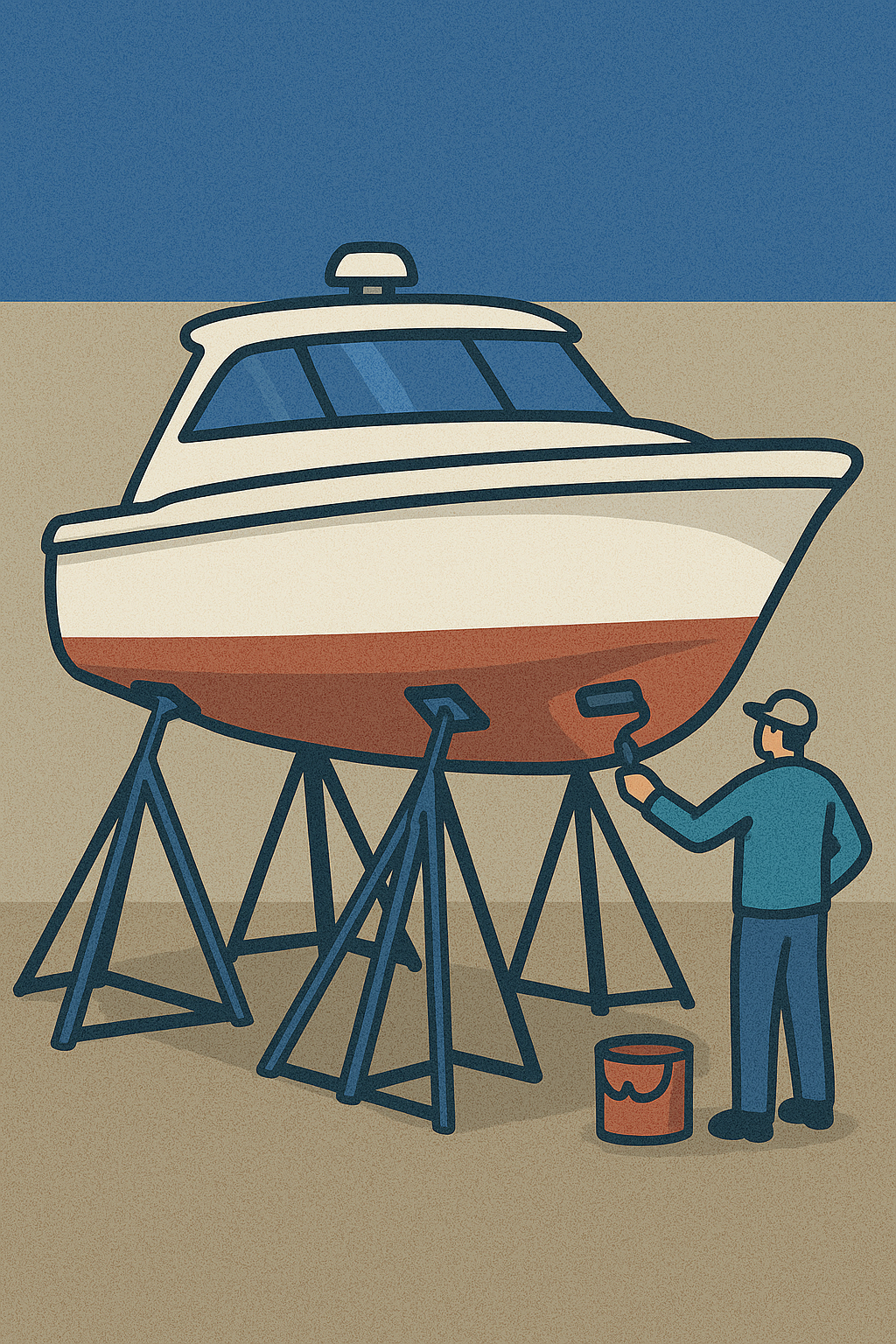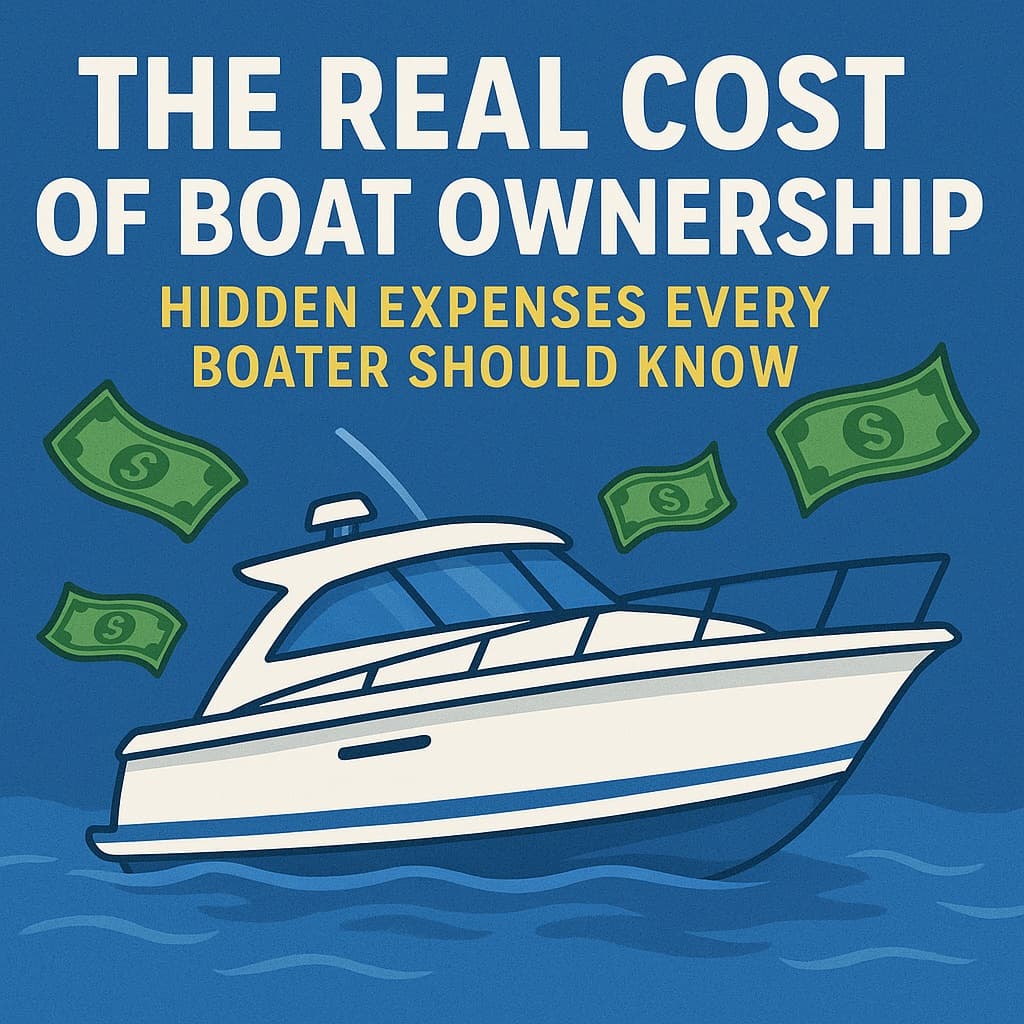The Real Cost of Boat Ownership: Hidden Expenses Every Boater Should Know
There’s a saying among boaters: the two happiest days of your life are the day you buy your boat and the day you sell it. But the truth is, with the right expectations and budget, every day in between can be just as enjoyable. While the purchase price gets all the attention, the real cost of owning a boat lies beneath the surface—fuel, storage, maintenance, insurance, and all the little surprises that come with life on the water. Understanding these hidden costs ahead of time helps you plan smarter, spend wiser, and enjoy boating without financial stress.
Fuel and Maintenance: The Everyday Costs
Fuel is the most obvious recurring expense, yet it’s often underestimated. A 30-foot cruiser burning 15 gallons an hour can easily rack up hundreds of dollars on a weekend trip. Even smaller center consoles and runabouts can surprise you when fuel prices climb. Regular maintenance adds another layer—oil changes, impellers, filters, and seasonal servicing all add up. Just like cars, the better you maintain your boat, the less you’ll spend on major repairs later. Think of it as insurance against the unexpected.
Storage and Dockage: Paying for Space
If you’re not trailering your boat, storage can become a major line item. Marinas typically charge by the foot, and slip fees vary widely depending on location and amenities. In popular harbors or yacht clubs, expect premium pricing that can exceed the cost of a small mortgage payment. Dry storage and boat yards are cheaper options, but they come with trade-offs in convenience. Even trailer boat owners face expenses for storage space, launch fees, or HOA restrictions if the boat can’t stay at home.
Insurance and Registration: Protecting Your Investment
Boat insurance isn’t just a formality—it’s a financial safety net. Comprehensive coverage protects you from damage, theft, and liability, but premiums depend on your vessel’s value, type, and location. Annual costs can range from a few hundred dollars for smaller boats to several thousand for yachts. On top of that, every state requires registration or documentation fees that recur annually. Some regions also add taxes based on assessed value, which can surprise new owners.
Upgrades, Gear, and “Nice-to-Haves”
Few boaters can resist adding a new GPS, upgraded stereo, or custom canvas cover. These extras enhance your experience but quickly add up. Safety gear, lines, fenders, life jackets, and electronics are all part of outfitting your vessel. Even small touches—like replacing old dock lines or restocking your galley—can quietly add hundreds to your budget each season.

Haul-Outs, Bottom Paint, and Seasonal Work
For in-water boats, annual haul-outs are a fact of life. Each time your boat is lifted for cleaning, painting, or inspection, there’s a fee attached. Bottom paint wears off and needs refreshing, zincs corrode, and through-hulls need checking. These jobs keep your boat seaworthy but also require planning and budgeting. A typical annual maintenance haul for a 30- to 40-foot boat can easily reach $1,000–$2,000 or more, depending on the yard and work required.
Depreciation and Unexpected Repairs
Just like cars, boats depreciate—sometimes faster. Market trends, brand reputation, and maintenance history all influence resale value. Engines are another major factor; one surprise failure can mean a five-figure repair bill. Having a cushion for unexpected costs is crucial. Smart owners set aside 10–15% of their boat’s value annually for maintenance and repairs, ensuring they’re never caught off guard.
How to Budget Smart
The real secret to affordable boating isn’t cutting corners—it’s planning ahead. Before buying, estimate not just your loan payment, but also yearly expenses for fuel, insurance, storage, and upkeep. Many experienced owners find that annual costs often total 10% to 15% of the boat’s purchase price. Knowing this range helps you buy confidently and enjoy your boat stress-free.
Owning a boat isn’t cheap, but it’s not meant to be. It’s an investment in memories—sunset cruises, fishing trips, family weekends, and freedom on the open water. The key is going in with open eyes and a realistic budget. Because when you know what to expect, the only surprises are the good kind.
